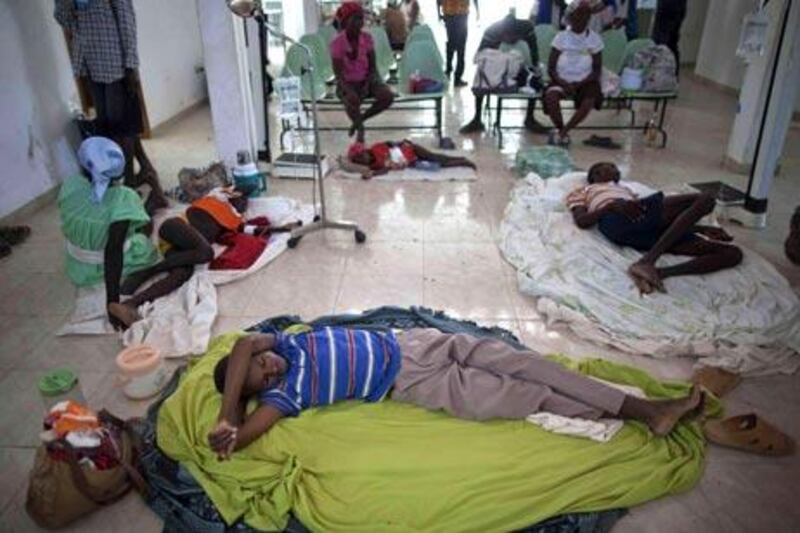A sudden cholera epidemic in Haiti has killed more than 208 people, officials have said, as Haiti scrambled to contain a wider outbreak 10 months after an earthquake devastated the Caribbean nation.
A few days after the first cases appeared in the north, the outbreak looked to be moving closer to the capital, Port-au-Prince, which is heavily populated by homeless residents in tent cities where sanitation is poor.
"We have recorded more than 208 dead," said Gabriel Thimote, the health ministry's director general. Of those, 194 occurred in the Artibonite department in northern Haiti and 14 in central Haiti closer to the capital.
About 3,000 people have been admitted to hospitals and health centres which were struggling to cope with overwhelming rush of sick patients as Haiti grapples with its first cholera outbreak in over a century.
More than 50 inmates at a prison in the centre of the country have been infected with cholera, and three inmates have died, officials said.
"The situation is under control. The population should not give in to panic, but people must take hygienic measures seriously," said Jocelyne Pierre-Louis, a physician with the health ministry.
The president Rene Preval and the health minister Alex Larsen toured regions affected by the epidemic yesterday, as authorities vowed they were working to provide clean water to residents.
On Friday, the health ministry asked the United Nations operations in Haiti to take charge of distributing medication that is being sent by international donors.
The Canadian government has offered to set up a military hospital in Haiti and the United States has pledged to set up large tents to treat patients on the ground.
Canada, which has its own sizeable Haitian population, also offered to send $1 million Canadian to help fight the spread of the outbreak.
"Canada is worried about the risk that this serious disease spreads to other communities," the Canadian prime minister Stephen Harper said.
The US branch of the Red Cross said yesterday that three large shipments of supplies had arrived in the impoverished country.
Contamination of the Artibonite river, an artery crossing Haiti's rural centre that thousands of people use for much of their daily activities from washing to cooking, was believed to be at the source of the epidemic.
But the rapid spread of the disease, which is caused by a bacterial infection in the small intestines, raised fears of a much larger health emergency, particularly if it reaches the camps around Port-au-Prince housing hundreds of thousands left homeless from Haiti's devastating January 12 quake.
"It is a scenario of catastrophe," Mirlande Manigat, the frontrunner in Haiti's presidential elections, told broadcaster Radio-Canada during a visit to Montreal.






